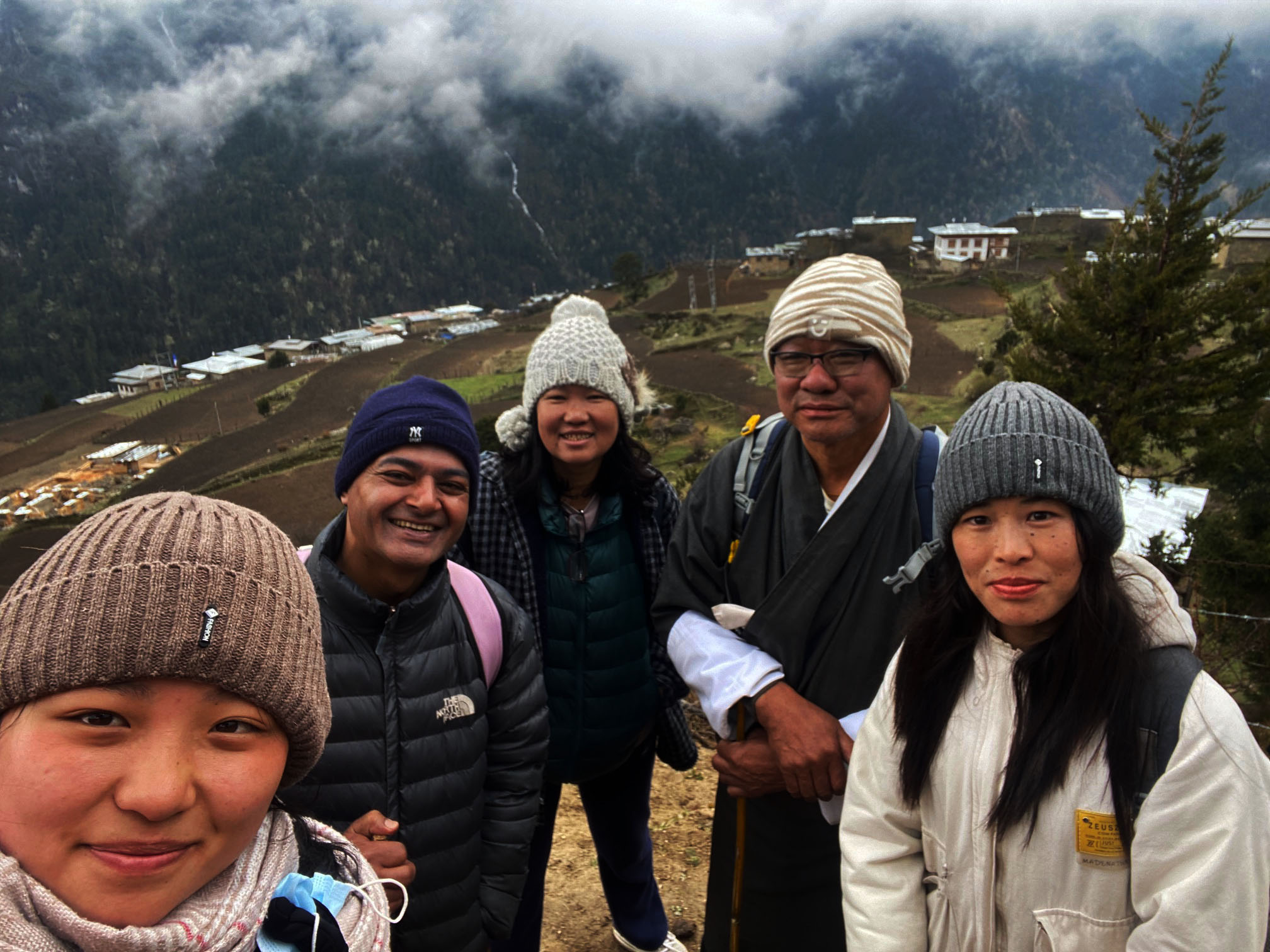- TCRD, 145 Chang Lam SE, Norzin | Fax: +975-2-331433 | +975-2-329333 |
The Tarayana Centre for Research and Development (TCRD) was established on June 10th, 2015, to commemorate the 60th Birth Anniversary of the Founder and President of the Tarayana Foundation, Her Majesty Queen Mother Ashi Dorji Wangmo Wangchuck. Since 2023 TCRD was renamed as Tarayana Centre for Research and Development (TCRD) to broaden both the scope and alignment of the research initiatives with the Foundation’s engagement in transforming rural communities. TCRD is the research branch of the Foundation engaged in practical research to co-create solutions that address the issues faced by the vulnerable groups and communities. TCRD will document the Foundation’s project impacts, lessons learnt, the prevalent indigenous knowledge and oral folk traditions.


Co-creating solutions to address the issues of rural communities for local resilience.

Climate Change and building Climate Resilience
Sustainable Livelihoods
Women and Youth
Focusing on transdisciplinary action-oriented research in the areas of adaptation to climate change, sustainable organic agriculture, holistic food systems, gender transformative change and wellbeing.
The programme is supported by the Canadian government through the International Development Research Centre (IDRC).
The TCRD partners with College of Natural Resources in Lobesa, Punakha to implement the biophysical aspects of the project. B-KIND aims to enhance adaptive capacities and resilience of economically vulnerable rural women, men and youth, by developing rigorous evidence-based scientific and citizen-research.
This informs gender transformative climate adaptation practices and policies for improving sustainable rural livelihoods, integrated organic agricultural-food systems and gross national happiness.

Taking a holistic, integrated approach that addresses the climate change-agriculture/food systems-gender equality nexus for sustainable and equitable development and wellbeing.
It’s overall objective is to develop and apply evidence-based scientific and indigenous knowledge to promote and inform gender transformative practices and policies for enhancing adaptive capacities, sustainable livelihoods and wellbeing of vulnerable rural communities in Bhutan.
In light of rapidly changing contexts in rural Bhutan where climate change, COVID19 and socio-economic vulnerabilities exacerbate economic poverty, food insecurity, unhealthy food consumption and nutrition, gender inequality and differences in gross national happiness, B-KIND’s specific objectives are:
To generate knowledge about locally appropriate organic agricultural-food systems, tradeoffs and gender transformative practices.
To implement action-oriented research on the use of best organic farming practices and holistic food systems that enhance the livelihoods of rural communities while strengthening local adaptation capacities, exchange networks and gender equitable benefits.
To strengthen the trans-disciplinary expertise, scientific capacities, leadership and equitable opportunities of researchers, students, research institutions, and science-policy networks.
To inform evidence-based policy processes in Bhutan related to national plans for resilient organic farming, climate change, gross national happiness, gender equality, and food and nutrition security and to enhance leadership/expertise on multidisciplinary research in the country.
We have programs throughout the country. Help spread all that it means to B-KIND!